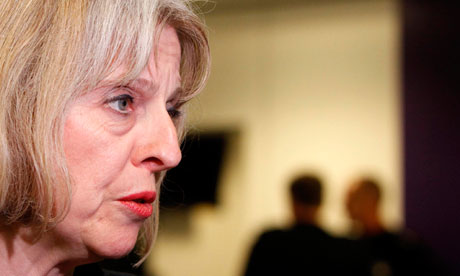The Conservative government has publicly chastised the Labour opposition for their refusal to back the government on its austerity plans, calling them "Irresponsible". But is austerity really the best solution to the economic crisis?
In terms of economy austerity refers to a policy of deficit-cutting by lowering spending via a reduction in the amount of benefits and public services provided. In other words harsh measures for harsh times but according to leading economist and Nobel peace prize winner Paul Krugman, austerity not only contracts an economy but "The Notion that austerity can inspire confidence in a business and result in expansion is completely wrong" as proved by various European economies as well as in the UK.

Mr Krugman was challenged on Jeremy Paxmans BBC talk show by conservative mp and member of the treasury select committee Andrea Ledsom who argued that "austerity measures work and are successful when done hard and fast, and that the public sector can only be expanded by taking wealth from the private sector ( which makes absolutely no sense to me because austerity measures often include cuts to benefits like JSA or income support and that is no private sector money!). Andrea was then backed up by Jon Moulton who remarked that Paul Krugman's solution to the economic crisis(which consisted of borrowing more money and building up a bigger public debt) was morally questionable and not much of a solution in itself.
There are two major issues of morality in this argument one is that the result of austerity measures leave our children in debt, having to pay for ever increasingly expensive education and little to no jobs to boot.
The other is that over zealous borrowing will leave our future generations in massive debts. There is no clear correct method to end recession and inspire economic growth, but one thing that is clear is no matter which way this country pulls through these dark times the bill will be picked up by the next generation.
Watch video here http://www.bbc.co.uk/news/business-18281669
In terms of economy austerity refers to a policy of deficit-cutting by lowering spending via a reduction in the amount of benefits and public services provided. In other words harsh measures for harsh times but according to leading economist and Nobel peace prize winner Paul Krugman, austerity not only contracts an economy but "The Notion that austerity can inspire confidence in a business and result in expansion is completely wrong" as proved by various European economies as well as in the UK.

Mr Krugman was challenged on Jeremy Paxmans BBC talk show by conservative mp and member of the treasury select committee Andrea Ledsom who argued that "austerity measures work and are successful when done hard and fast, and that the public sector can only be expanded by taking wealth from the private sector ( which makes absolutely no sense to me because austerity measures often include cuts to benefits like JSA or income support and that is no private sector money!). Andrea was then backed up by Jon Moulton who remarked that Paul Krugman's solution to the economic crisis(which consisted of borrowing more money and building up a bigger public debt) was morally questionable and not much of a solution in itself.
There are two major issues of morality in this argument one is that the result of austerity measures leave our children in debt, having to pay for ever increasingly expensive education and little to no jobs to boot.
The other is that over zealous borrowing will leave our future generations in massive debts. There is no clear correct method to end recession and inspire economic growth, but one thing that is clear is no matter which way this country pulls through these dark times the bill will be picked up by the next generation.
Watch video here http://www.bbc.co.uk/news/business-18281669
















